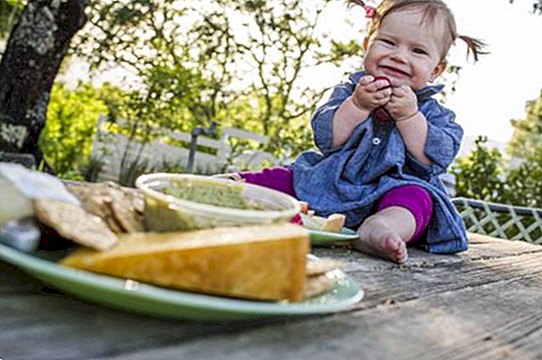What we can look for from other parents

In Germany, education is a private matter. External interference is perceived by many parents to be overbearing. The proverbial village that supposedly needs to raise a child has little meaning in our small-family society.
"In other countries, the cultural patterns are even more alive, according to which education is not just a matter for parents," says Michaela Schonhöft, who has spent three years researching her book "Childhoods - How Small People Grow Up in Other Countries."
But in addition to this fundamental difference, there are many exciting details and educational practices in other cultures that surprise and inspire us.
France: child eats everything
Noodles with nothing? Rice without sauce? What is commonplace in Germany's dining tables, because children make a revolt in everything that is green, is unthinkable in France. There, children eat what comes to the table. Say what the adults eat? be it broccoli, foie gras or blue cheese. Et basta!
Norway: The child does not freeze!
 © FamVeld / shutterstock
© FamVeld / shutterstockBabies and toddlers are put to sleep in Norway even in winter? even at minus degrees. But of course very chubby packed in the car or buggy.
Vietnam: diaper-free infants
 © John Bill / shutterstock
© John Bill / shutterstockMany Vietnamese babies are already dry at the age of nine months. Are your parents conditioning them with a certain whistle? yes, exactly, similar to the Pavlovian dog. Even from birth, parents make a whistling sound when they realize that their baby has to. Soon the baby only pees when it hears the signal. Of course, this presupposes that the parents are sensitive to when their child's bladder may be full. Hard to imagine how many diapers we would save!
Denmark: Children are allowed to stay outside
 © JPM / Corbis
© JPM / CorbisGerman parents (okay, especially the mothers) are often too afraid for their children. In Denmark, on the other hand, you do not see a potential kidnapper in every passers-by. When mom or dad goes shopping or coffee, the kid stays outside in the car. Because fresh air is healthy.
Polynesia: Integrated childcare
 © Rebecca Drobis / Blend Images / Corbis
© Rebecca Drobis / Blend Images / CorbisPre-school children learn how to calm a baby in Polynesia. As soon as a child can walk, it is looked after by the older ones. Positive effect: The children become independent early, because they learn that they are allowed to play only with the adults, if they do not always call for Mom.
Japan: Akari alone on the way
 © B.S.P.I./Corbis
© B.S.P.I./CorbisIn Japan, it is not uncommon for seven- and even four-year-olds alone to make the area unsafe and also use public transport. For this they are never left the first years of life alone. Not even when sleeping.
Central Africa: Fathers let their children suckle
 © Jenny Matthews / In Pictures / Corbis
© Jenny Matthews / In Pictures / CorbisFor the Aka Pygmies of Central Africa, the roles of father and mother are completely interchangeable. The women go hunting, the men take care of the children? and vice versa. The fathers even let their children suck on their nipples. We can find out a lot about that.
Spain: Being together is everything
 © BUCK Studio / Corbis
© BUCK Studio / CorbisSpanish parents emphasize the social aspects in education. For example, to enable children to participate in family life, they are always allowed to stay up late, even during the week until 10 pm. That's certainly nice for the kids? We German parents are rather happy, when finally peace in the box is.
Video Recommendation:











